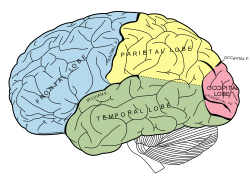 As a popularizer of Economics and Statistics, no one surpasses Steven Dubner
As a popularizer of Economics and Statistics, no one surpasses Steven DubnerAs a psychology professor, Kahnman's book is packed with fascinating experiments and observations. Consider the case of praising good behavior versus punishing bad behavior ... in this specific case, the subjects were Israeli fighter pilots, but that is not really important. Kahnman observed that praising good performance was following by a decreased level of performance, while castigating poor performance was followed by an improvement. Clearly a rebuttal of the positive reinforcement crowd!
But ... as Kahnman explains in exhaustive detail, this is a fault of the human tendency to see cause and effect where none exists. Both above average and below average performances are always followed by average performances. The positive or negative feedback is irrelevant. The instructor could just as well have praised the below average and ranted against the above average.
This book is packed with similar examples and experiments, each followed with detailed analyses backed by Economic, Statistical and Psychological theory, together with the historical evolution of these theories. I found that I was retelling this fascinating vignettes to anyone who was within earshot.
The astute reader might notice that I haven't mentioned thinking, either fast or slow. This book as actually a collection of stories is packaged in four parts: Don't trust what you think, Don't trust statistics, Don't trust experts, and Everything else. The final sections reveals the book as a biographical retrospective covering Kahnman's life work.
The title comes from the first section which introduces System I, the fast, automatic thoughts that control much of human interactions and responses, all below conscious thought, and System II, the slow, conscious thought processes that aspire to rationality and logic. While this is really interesting and insightful, much has been reported on NPR and it is mostly irrelevant to the remaining 75% of the book.
I began the book expecting to learn some new paradigm of thought and action, but instead I found a collection of experiments and observations surrounded by rigorous analyses. As an intellectual omnivore, I found the mixture of serious Statistics, Economics and Experimental Psychology a pleasure to read. For the eclectic dilettante, this is a nice compromise between the popular fluff of Steven Dubner and the dead weight of college textbooks.


No comments:
Post a Comment